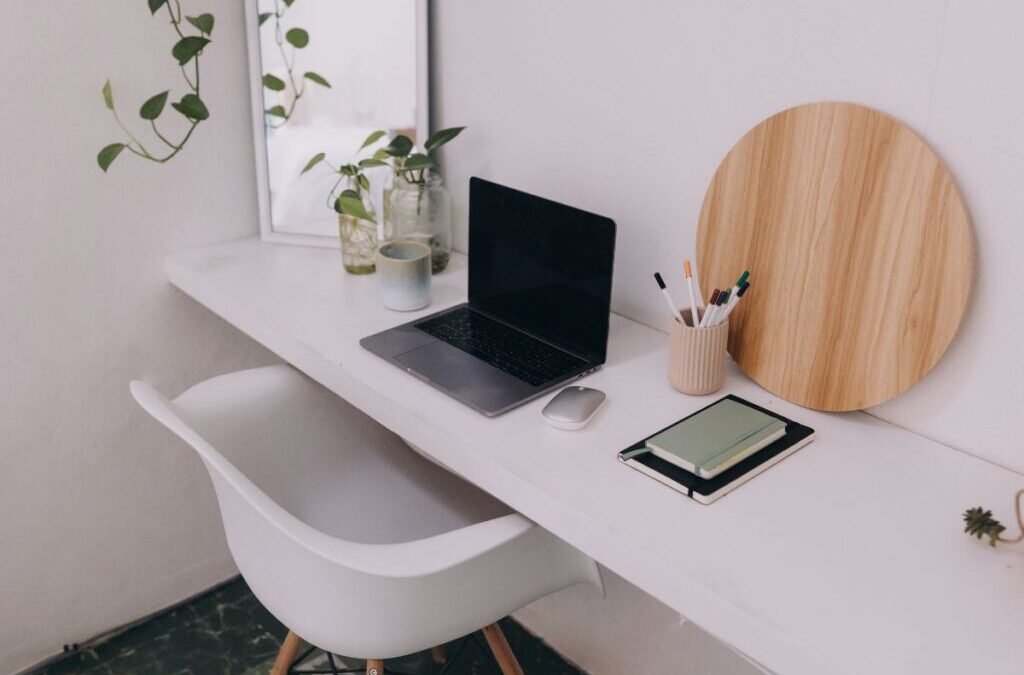Inside: Consider adopting some of these life-changing minimalist habits, even if you don’t consider yourself a minimalist.
Minimalism has become an attractive lifestyle for many in a world that has focused on excess.
The philosophy of embracing simplicity, intentional living, and a meaningful life that doesn’t rely on accumulating physical stuff sounds tempting to many.
In today’s constantly on, overwhelming modern world, the thought of taking a step back and embracing a more simple existence can be a breath of fresh air for some – but for others, it isn’t as appealing.
And that’s fair – minimalism isn’t a fit for everyone. Still, you can benefit in a big way from some minimalist habits, even if you don’t consider yourself a minimalist.
Not sure what that looks like? Here are a few life-changing minimalist habits you can adopt – even if you aren’t a minimalist.
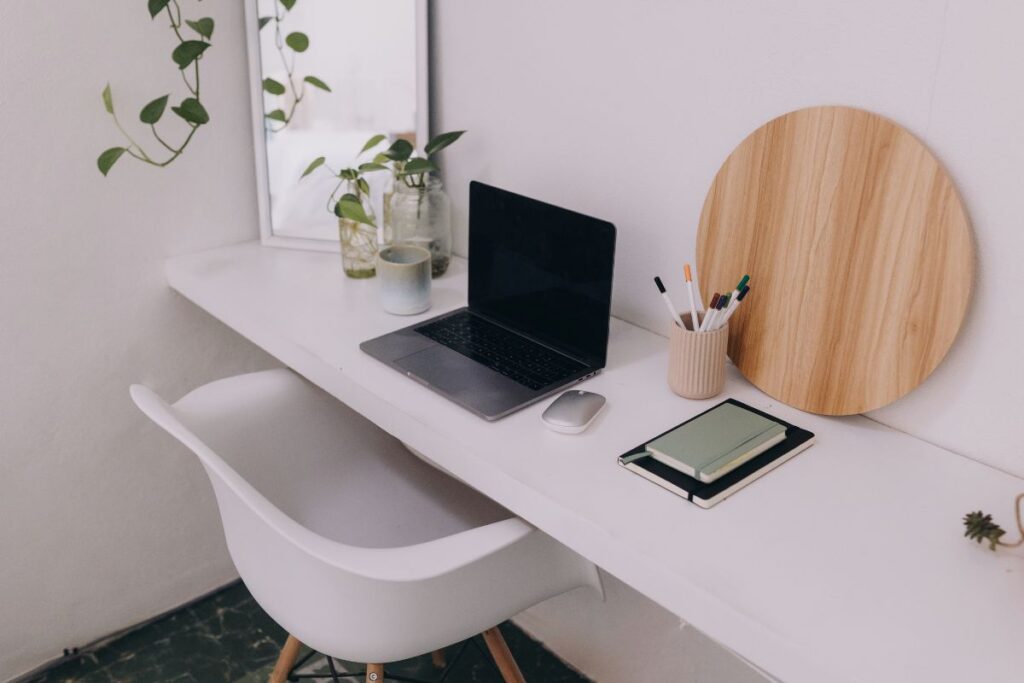
7 Minimalist Habits That Can Change Your Life
These minimalist habits can have a positive impact on your life even if you don’t consider yourself a minimalist (I prefer to focus on simplicity instead).
Here are the minimalist habits that can benefit everyone.
1. Embrace a simple morning routine.
What does your morning routine look like today? If it starts with snoozing your alarm three times and ends with you frantically scrambling around your house, getting ready for your day, you could benefit from a more minimalist approach.
A simple, intentional morning routine can set the tone for your whole day – and you might be surprised to see how much of an impact it can make.
When you start your day in a high-stress, anxious mindset, that energy carries over as you go to work, school, or handle whatever obligations are on your plate.
Similarly, if you start your day calmly, giving yourself plenty of time and focusing on accomplishing only one or two mindful tasks throughout the process, you’ll find yourself in a much better place to accomplish your goals.
Your simple morning habits might involve a quick meditation or stretch session, or a walk around your block with a cup of coffee in your hand to get some fresh air.
Or it could involve reading a chapter of a book, or putting on your favorite playlist as you do your skincare routine.
The key? Keep it simple and focus on meaningful activities that give you energy and bring you joy.
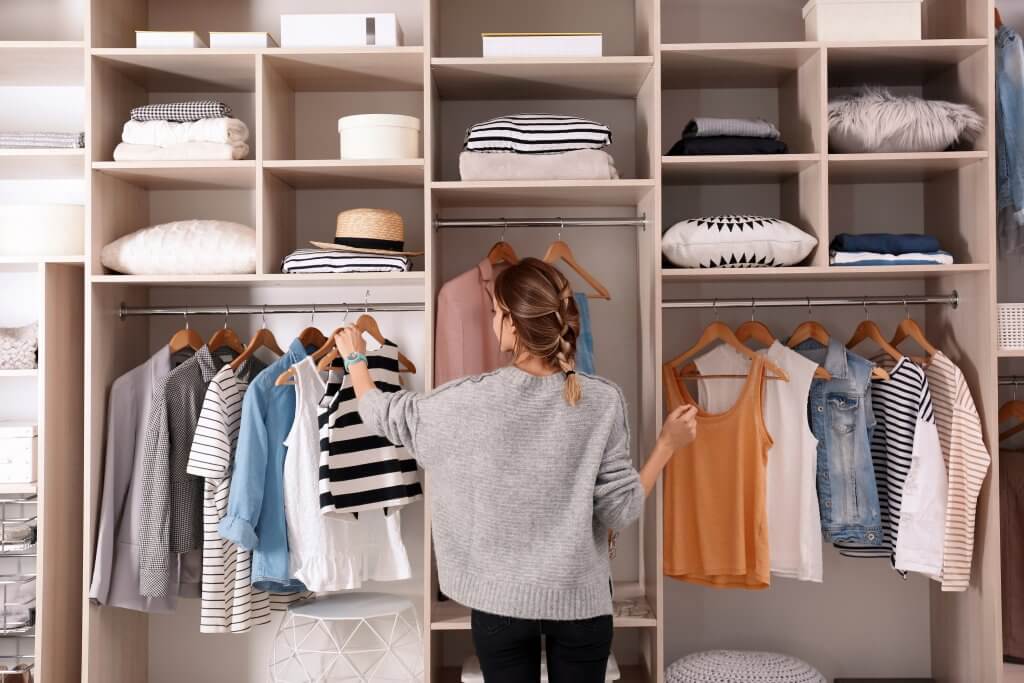
2. Simplify your wardrobe.
You might not realize it, but your overstuffed closet filled with an endless assortment of clothes might be stressing you out – even if you think you love it.
How many times have you spent way too long getting ready in the morning because you couldn’t find the exact shirt or pants you wanted among the clutter? How often do you try on outfit after outfit, trying to decide what you actually want to wear?
Embracing a more minimalist wardrobe can solve all of those problems while still letting you show off your personal style.
But how do you do it?
First, you declutter your closet. Pick one type of clothing at a time to sort through and ruthlessly declutter. Remove items that don’t fit, that you don’t feel great in, or that you simply don’t like.
By getting rid of the clothes you don’t need, focusing on the pieces you love, and potentially supplementing your wardrobe with a few versatile items to fill any gaps (if needed), you can take the stress and energy out of the process of getting dressed each day while still loving what you’re wearing.

3. Declutter your home regularly.
When you think of minimalism, the concept of decluttering is often quick to come to mind. Getting rid of the physical stuff you no longer need – beyond just the clothes in your closet – is a key component of embracing a minimalist lifestyle.
And it’s easy to see why.
When you live in a space filled with too much stuff, it can take a surprising toll on your well-being – physically and mentally. All of that stuff makes it difficult to stay clean, giving dust and dander virtually endless places to accumulate.
The physical presence of clutter can cause stress and anxiety, inhibit our creativity and decision-making skills, and more – even if we don’t realize it.
By creating decluttering habits and removing clutter from your home on a regular basis, you keep things neat, clean, and organized. You make it easy to find the things you need by eliminating the stuff that doesn’t really serve a purpose or bring any joy.
You don’t have to get rid of everything. It’s really about finding the right amount of stuff for you and your home. You can have a home that is both cozy and simple. It just takes effort and intentionality to get there.

4. Shop mindfully.
The concept of shopping mindfully goes hand in hand with maintaining a clutter-free space. By cutting down on the amount of stuff you’re bringing into your space, you keep it clean and decluttered.
To be clear, this doesn’t mean you can’t buy anything at all. Instead, it’s all about being more intentional with shopping.
Curb those impulse buys and thoughtfully select the clothes, furniture, decor, books, and other stuff you bring into your home.
By researching your options and making smart decisions, instead of quickly buying the first thing that comes to mind when a need arises, you’ll set yourself up for success down the road.
This also means focusing on quality instead of quantity. By investing in items that you can keep and use for the long run, instead of the most affordable, instantly available thing you can find, you’ll find yourself surrounded by quality pieces that you love – instead of a bunch of random items.
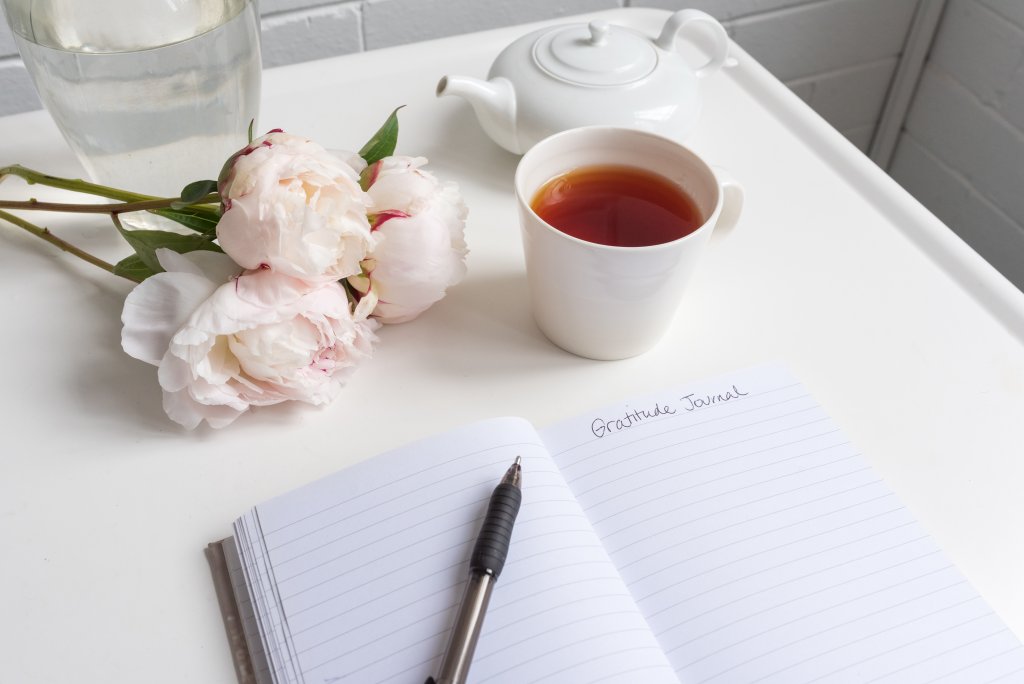
5. Practice gratitude.
A key component of minimalism, at its core, is practicing gratitude for the things you have instead of constantly chasing more.
But gratitude is something that everyone can benefit from regardless of whether or not you consider yourself a minimalist.
By focusing on the blessings in our lives, big and small, we cultivate a sense of appreciation and joy that lifts our spirits and helps us embrace a more positive perspective, even when we face challenges.
The best part? Practicing gratitude doesn’t cost anything at all and only takes a few minutes out of your day.
You can start a gratitude journal by writing down a few things you’re grateful each day for in a notebook, or you can think about one or two things you appreciate while you’re brushing your teeth or heading to work.
It might not sound like much, but you’ll be surprised to see just how much of an impact it can make in your life.

6. Use your yeses wisely.
Living simply isn’t about only owning less stuff. It’s also about being purposeful with your time.
Minimalists strive to prevent clutter in their calendars and declutter their schedules as needed.
They use their yeses purposefully and selectively. Simple living embraces rest and encourages a slower pace.
Resisting the urge to overcommit or pack your schedule enables you to be more intentional with relationships. When you have more time available you can be there for family members or friends when you want or need to be.
Using your yeses wisely allows you to have the freedom and flexibility that you wouldn’t have otherwise. You can decide to do spontaneous outings because you aren’t constantly busy running from one thing to the next.
Minimalists intentionally choose to become unbusy and that’s something we can all benefit from.
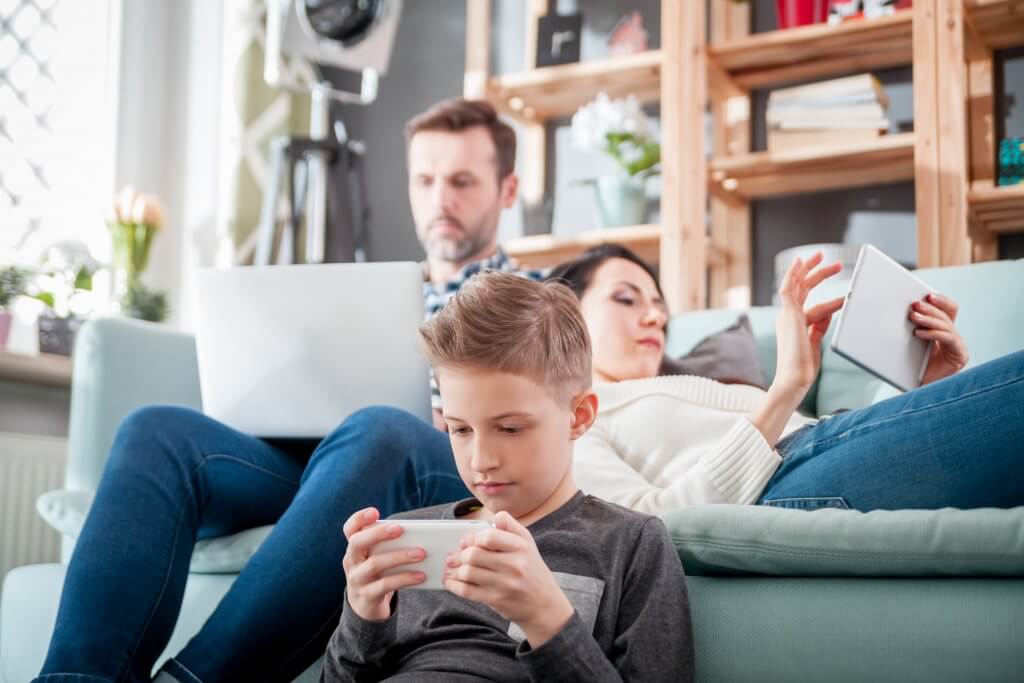
7. Use technology intentionally.
The final minimalist habit that everyone should consider is being intentional with the use of social media, devices, and the use of technology.
We are impacted both positively and negatively by the recent advances in technology. While they have made some things easier, they can also become another magnet for clutter.
Minimalists regularly get rid of digital clutter. It helps to save time and limit distractions which is helpful for everyone.
Being intentional with technology also means being mindful of when and how you use it. Consider the ways it is influencing your thinking and behavior. Is it helping you or is it stealing more of your time than you’d like?
By critically assessing the pages and people you follow, and the articles and videos you click on, you can drastically improve the content you’re consuming online.
Creating healthy boundaries with devices and limiting screen time is also crucial. Kids learn by example so reflect on what you’re teaching them.
Adopting this one minimalist habit could help improve your mental health, your relationships, and get you a lot more time back to spend on other things.
What minimalist habits would make a big difference in your life? Leave a comment and let me know what you think!
Sign up on the form below to get weekly decluttering tips and inspiration sent straight to your inbox. You’ll also get the free 5 Areas to Declutter in 10 Minutes Checklist to help you get started decluttering today.
window.fd(‘form’, {
formId: ’60fafee5c580329d41b9a50d’,
containerEl: ‘#fd-form-60fafee5c580329d41b9a50d’
});
The post 7 Life-Changing Minimalist Habits to Adopt (Even If You’re Not a Minimalist) appeared first on The Simplicity Habit.

